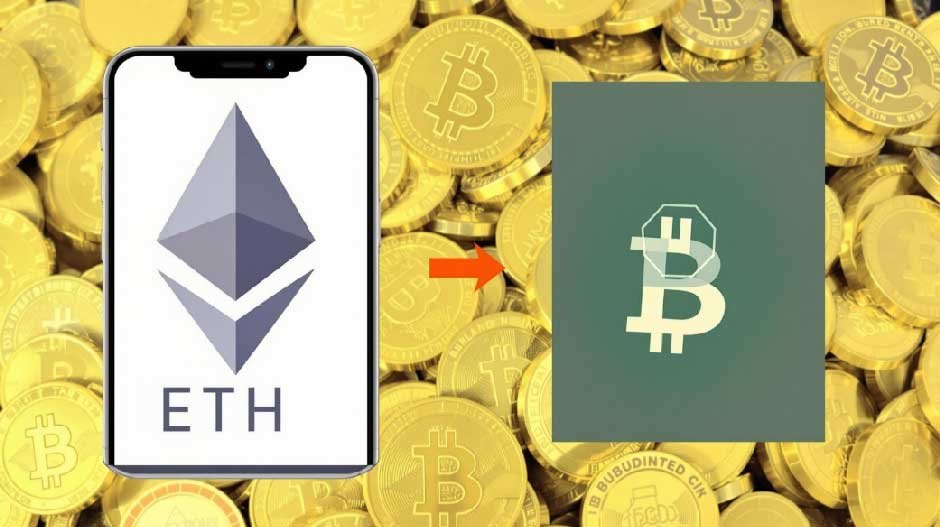Skip to the good bit
ToggleThe ETH to BTC trading pair represents one of the most liquid cryptocurrency markets, with daily trading volumes exceeding $2 billion as of December 2024. Converting between these cryptocurrencies involves navigating different blockchain networks, where fees can range from under $1 to over $100 during peak times on the Ethereum network, while Bitcoin transaction fees typically remain between $2 to $5. Whether using traditional exchanges with lengthy verification processes or instant swap platforms offering direct wallet-to-wallet transfers, understanding the optimal conversion method for your specific needs can significantly impact transaction costs, speed, and security.
Choosing the right conversion method
The cryptocurrency market has evolved beyond simple exchange platforms. Your choice of conversion method significantly impacts transaction speed, security, and costs. Each method serves different needs – from quick trades to large-volume conversions.
Instant swap platforms
Instant swap services represent the latest evolution in cryptocurrency exchanges. These platforms eliminate traditional order books in favor of automated market makers (AMMs). Think of AMMs as digital market makers that always stand ready to trade, using complex algorithms to maintain fair prices.
Key benefits of instant swaps:
- No registration requirements
- Immediate execution
- Transparent pricing
- Minimal technical barriers
- Direct wallet-to-wallet transfers
Traditional exchanges
Traditional cryptocurrency exchanges offer a different approach to ETH-BTC conversion. These platforms maintain order books where trades occur when buy and sell orders match. For users exploring alternative cryptocurrencies, platforms like Paybis make it simple to buy Dogecoin with PayPal, offering a quick and secure method to diversify your digital assets. While requiring more setup time, they provide advantages for certain types of traders.
“The choice between instant swaps and traditional exchanges often comes down to transaction size and timing requirements. Large trades benefit from the deeper liquidity of traditional exchanges, while smaller conversions are often more efficient through instant swaps.”
Maximizing conversion speed
Speed in cryptocurrency conversions isn’t just about choosing the fastest platform. Network conditions, timing, and preparation all play crucial roles in how quickly your ETH becomes BTC.
Transaction timing becomes particularly important during periods of high market volatility. The Ethereum network typically processes transactions faster during off-peak hours, which occur between 1 AM and 4 AM UTC. During these periods, both gas fees and confirmation times tend to be lower.
Platform selection also significantly impacts speed. Deep liquidity ensures that large orders can be filled quickly without significant price impact. Meanwhile, integrated platforms that combine multiple liquidity sources often provide the fastest execution for any size trade.

Step-by-step seamless conversion guide
Converting ETH to BTC requires careful preparation and attention to detail. Success lies in following a structured approach that minimizes risks while maximizing efficiency. Let’s examine each crucial step of the process.
Before initiating any conversion, verify your wallet balances and ensure you have enough ETH to cover both the transaction amount and network fees. Remember that network fees can vary significantly throughout the day.
Advanced tips for efficient swaps
Professional traders employ several strategies to optimize their ETH-BTC conversions. These approaches focus on minimizing costs while maximizing execution speed and security.
Key optimization strategies:
- Utilize price tracking tools to monitor market conditions
- Split large transactions into smaller amounts
- Maintain accounts on multiple platforms for backup
- Keep emergency funds for unexpected fee spikes
- Monitor blockchain network status
Troubleshooting common issues
Even well-planned conversions can encounter obstacles. Understanding common problems and their solutions helps maintain calm when issues arise and ensures successful completion of your transaction.
Network congestion often causes the most frequent delays. When the Ethereum network experiences high traffic, transactions might remain pending for extended periods. In such cases, you have several options:
The most reliable solution for failed transactions involves checking the transaction hash on blockchain explorers. These tools provide detailed information about transaction status and can help identify specific failure points. For example, if a transaction fails due to insufficient gas, the explorer will show this clearly in the error message.
Best practices for large transfers
When handling substantial ETH to BTC conversions, security and precision become paramount. Professional traders and institutional investors follow specific protocols to protect their assets during large transfers.
The first consideration involves platform selection for large-volume trades. Established exchanges with high liquidity reserves typically offer better execution prices and reduced slippage. These platforms also maintain sophisticated security infrastructure, including multi-signature wallets and cold storage solutions.
Timing plays a crucial role in large transfers. Market volatility and network congestion can significantly impact conversion costs. Professional traders often break down large transfers into smaller transactions, executed at strategic intervals to minimize market impact and reduce risk.
Ensuring secure transactions
Security in cryptocurrency transfers involves multiple layers of protection. Understanding and implementing these security measures helps prevent unauthorized access and protects your assets during conversion.
Essential security protocols:
- Enable two-factor authentication (2FA)
- Use hardware wallets for storage
- Verify all transaction details twice
- Monitor network status
- Keep private keys secure
- Document each transaction
Conclusion
Converting ETH to BTC requires careful attention to detail, understanding of market dynamics, and adherence to security protocols. Success comes from combining the right tools with proper execution timing and careful security measures.
The cryptocurrency market continues to evolve, introducing new tools and platforms for ETH-BTC conversions. Regular updates to your knowledge and security practices ensure successful transactions in this dynamic environment.







